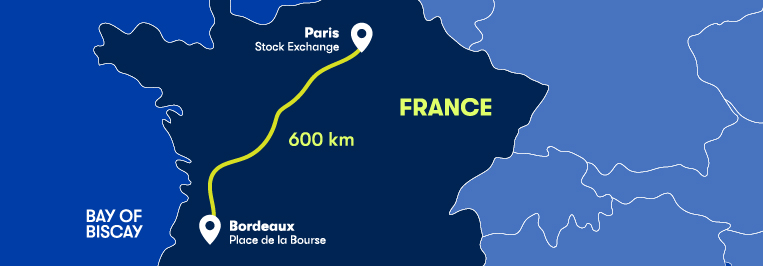The Code in The Signal: Ethics, Innovation, and the 200-Year-Old Cyberattack
Stories of the unscrupulous harnessing new technologies like cryptocurrency and artificial intelligence to defraud the public continue to make headlines. But even as the tools of fraud continue to evolve, the ethical core required to call out wrongdoing will never change.
According to forensic accountant Daniel Tourangeau, FCPA, FCA, who was instrumental in the QuadrigaCX case, the technology may be new but the techniques are always the same.
"Technology can give the impression of difficulty – that the fraud is so complicated you can't find it. But it’s the same old techniques as always. It’s a flow of funds, it can be a Ponzi scheme - just disguised and covered up by new technologies.”
In the race between innovation, regulation, and fraud, a personal commitment to ethics is the only way to stay one step ahead.
Consider the case of the Blanc brothers, and the story of one of the very first “cyberattacks” of a government communications network. And how, as is often the case today, it took one person with a strong commitment to ethics to put a stop to it.
“Hacking” a Government Network in the 1830s
In early 19th Century France, communicating across great distances was a challenge. Mail traveled by cart and could take weeks to reach its destination. But France’s government did have access to a groundbreaking innovation in telecommunications infrastructure: a mechanical telegraph system.
Used exclusively for government business, these wooden towers had adjustable signalling arms, the movement of which corresponded to numbers, letters, and symbols. The towers were spread out across the country and used by the government to relay messages from one end of the country to the other.
This presented an opportunity for two enterprising bond traders in Bordeaux, 600 kilometers from the Paris Stock Exchange.
In 1834, brothers Francois and Joseph Blanc bribed one of the telegraph operators to hide stock market information in official government messages, disguised as errors. This allowed them to get information on the latest stock moves in Paris days or even weeks ahead of their fellow bond traders.

And they might have even gotten away with it if the bribed telegraph operator hadn’t fallen ill. The Blanc brothers and the sick telegraph operator approached his replacement and proposed continuing the scheme. However, despite there being no law against what the Blanc brothers were doing at the time, the new telegraph operator had the strong sense of personal ethics to recognize that what they were doing was wrong and reported them.
The story of the Blanc brothers and one of the very first “hacks” is an important reminder of how a strong understanding of ethical responsibilities can provide the strong foundation needed to navigate even the most novel situation.
For CPAs, this foundation can be found in the Five Fundamental Principles of Ethics that make up the CPA Code of Professional Conduct and the Student Code. Whether it’s 1834 or 2024 professional behaviour, integrity and due care, objectivity, professional competence, and confidentiality can help ensure that you continue to uphold the highest of ethical standards.


